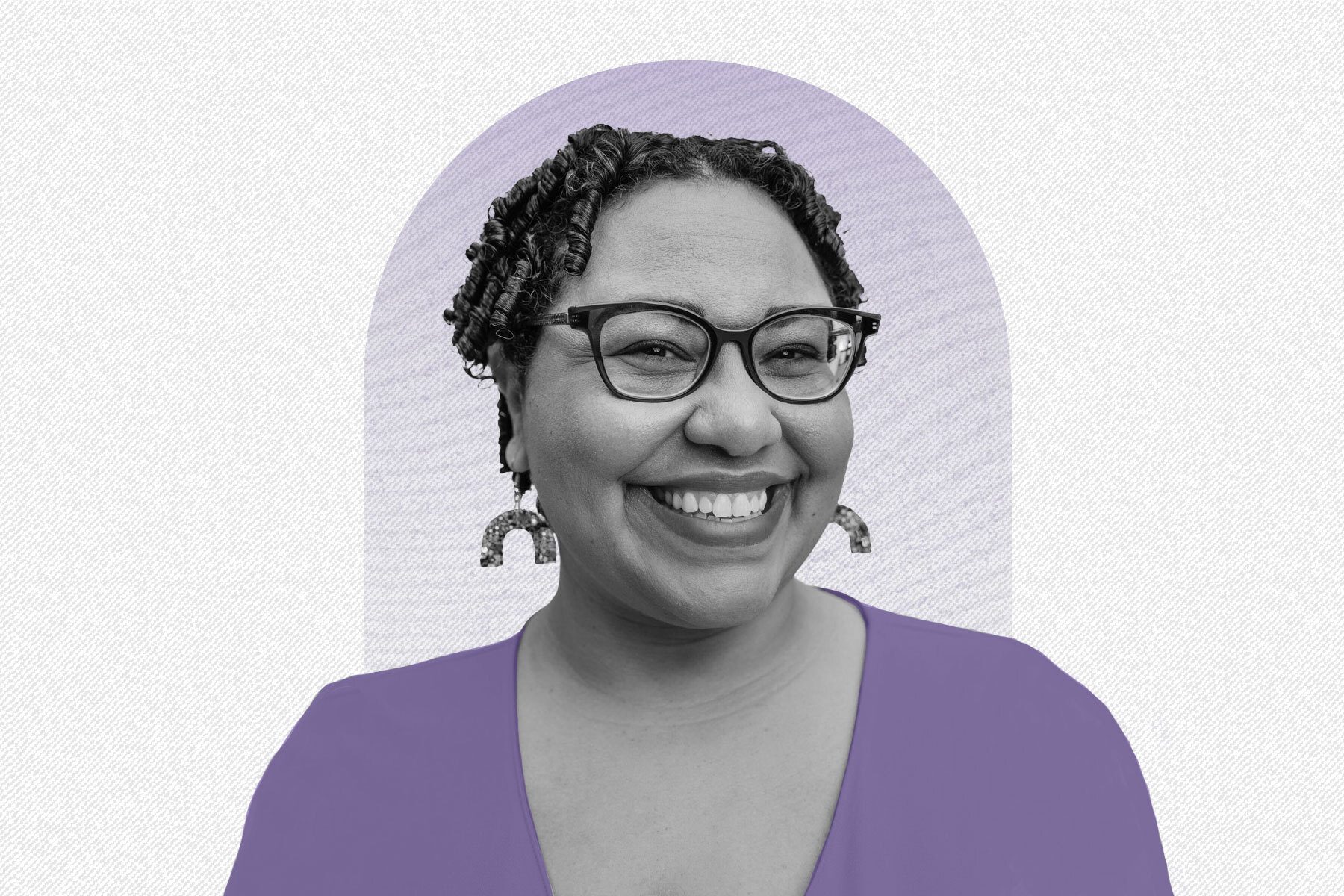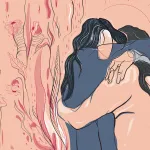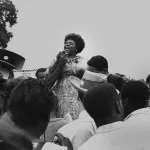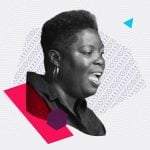This Black History Month, we’re telling the untold stories of women, women of color and LGBTQ+ people. Subscribe to our daily newsletter.
In 2022, Sami Schalk published “Black Disability Politics,” a book about the intersection of Black and disabled liberation. She weaves together historical documents from the Black Panther Party and National Black Women’s Health Project, with contemporary perspectives from Black disabled activists and advocates to address gaps in the way academics have traditionally approached disability rights. In doing so, Schalk articulates a vision of disability and Black activism that is more inclusive of both and more.
Schalk is an associate professor of gender and women’s studies at University of Wisconsin— Madison. Beyond her academic work, she is perhaps most well-known for her successful viral campaign to #TwerkWithLizzo. She did so in purple spandex shorts and a sparkling silver cape that she made herself.
“What kind of educator would I be if I did not also work to reject this oppressive culture in my personal and public life? My students benefit from, indeed deserve, a joyful educator who practices what she preaches regarding self-love and fighting oppression,” she wrote of the experience for Vox in 2019.
Black history reflections — and the path forward
This story is part of our Black History Month coverage. From in-depth Q&As to staff reflections and our inaugural 19th Celebrates event, we’re focused on telling stories along the twin themes of Black joy and Black resistance. Explore our work.
Schalk spoke with The 19th about “Black Disability Politics,” why she pushed to make her work available for free, and the future of Black disabled advocacy and activism.
This interview has been edited for length and clarity.
Sara Luterman: To start off, define Black disability politics — for folks who might not be familiar.
Sami Schalk: Black disability politics is the way that Black people engage with disability as a political and social issue, rather than a simply a medical or personal issue.
What differentiates Black disability politics from more mainline disability politics, or “White” disability politics?
Black disability politics is different from mainstream, White disability politics because of the history of the way that disability impacts and appears inside of Black communities. So often, disability in Black communities comes as a result of state and police violence, from medical racism, medical neglect, lack of access to resources. So we see disability showing up in these really specific community ways. For example, we might see Black folks organizing around something that really is about disability, but they’re still framing it primarily as a race issue, because they might be talking about something like police violence. In the instance of the Black Panther Party, they were talking about the use of certain types of psychiatric drugs inside of prisons and other carceral institutions. Sometimes we see Black disability politics showing up in a way that doesn’t actually use the word “disability.” In my book, I’m trying to show that this work is happening, but it might not be using the same language that the mainstream, majority White disability rights movement has used.
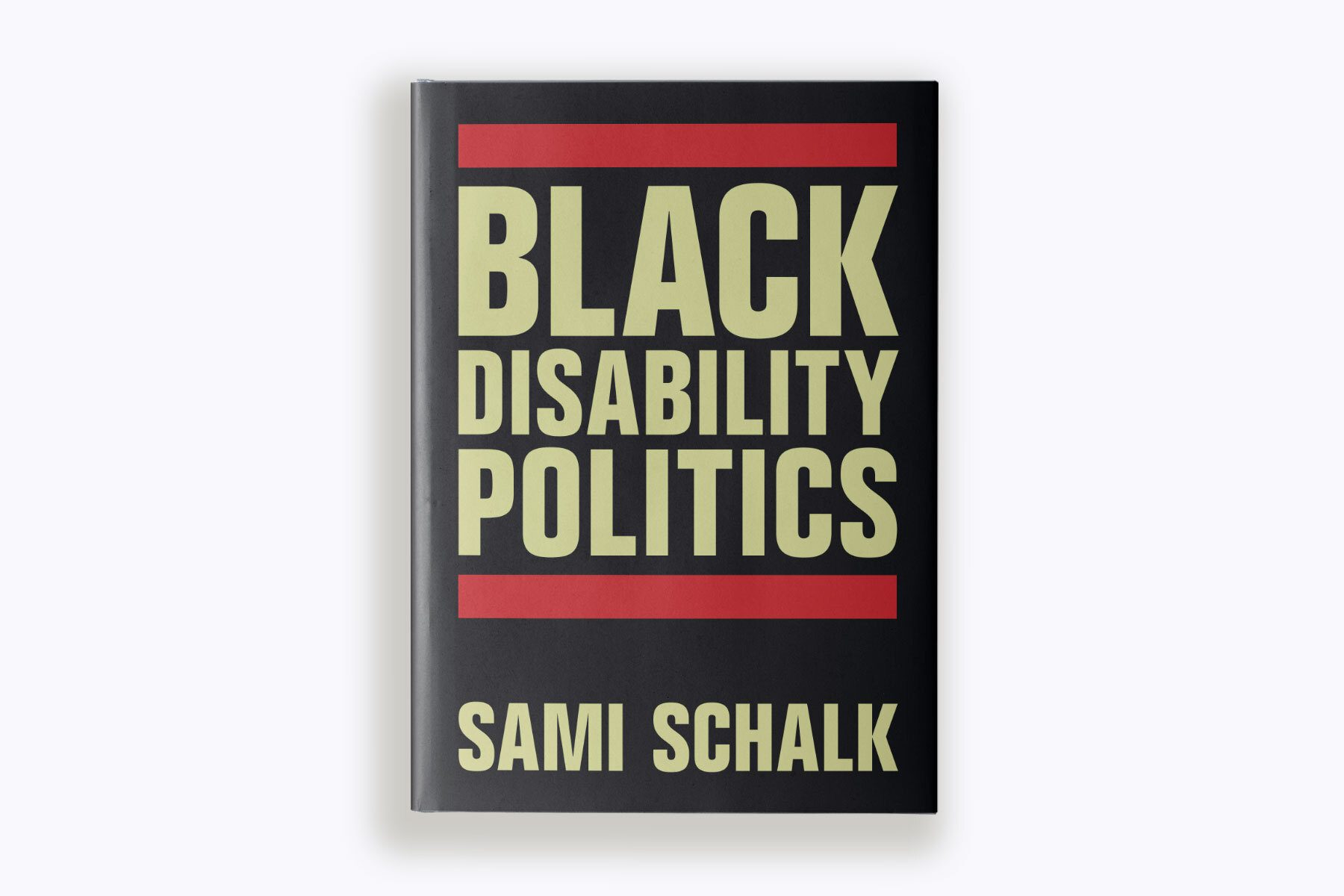
You’ve talked about how it took you a while to feel comfortable identifying as disabled. In your book, you wrote about how that’s common for a lot of Black Americans with disabilities. Can you talk a little bit about why that is?
There’s a variety of reasons. For many people, their disability comes from a place of trauma. So it is harder to claim that as something that is an identity as opposed to something that happened to you.
Another reason is because disability labels are used to segregate and harm a lot of people. For many Black folks and other folks of color, claiming disability could result in more oversight, policing and harm to them. And so, if it is possible for someone to not disclose disability to not claim disability, they might not. Even if they have a disability that is apparent in their body or minds, they might still say, “Well, I have this condition, right,” but they won’t say they’re disabled.
This is also shaped by the fact that to gain access to Social Security Supplemental Income, you have to be recognized as disabled in a particular kind of way. That is really hard to do for anybody, but it’s particularly hard to do for folks of color, to have access to the resources to make all that happen. So also because people are not getting state support, they’re like, “Well, I’m not disabled, right? Because I don’t get that kind of support.”
For me, personally, my experiences with disability go back pretty far in my life. I didn’t understand that I was disabled. I didn’t meet a certain kind of threshold. I don’t need medication. There were all these ways that I was like, am I disabled enough? But also I am fat and Black and queer and a woman. And honestly, there were moments that I was like, “That just seems like too much!”
I went to my first Disability Studies conference when I was 20. It still took me until my 30s to identify as disabled. And it took me being in community with other Black disabled people through this research and through this work, to really come to a place where I felt like I could claim disability.
Why is it important for disability activism to serve people who don’t necessarily see themselves as disabled?
Yeah, I think of it from an approach centering on what activists Stacey Park Milbern and Leah Lakshmi Piepzna-Samarasinha call “[crip] doulaing.” It’s bringing someone into the community who is newly disabled. I think we can actually expand that to folks who are newly understanding themselves as disabled, even if they’ve been disabled for a long time. That approach is a kind of birth or rebirth. To expect people to use certain words, or to push them out when they won’t is not going to create the large-scale disability justice movement that we need.
White folks in the disability community said things to me, like, “Let me know when you finally identify as disabled.” It’s a huge turnoff for people. I needed to do it in my own way, my own time. It is a process. When we insist upon people identifying as disabled, or having disability pride, we are forcing people into a process that they’re not quite ready for. Instead, we should create an environment that just says, “Come as you are, whether or not you identify as disabled. You deserve access to the medication that you need. You deserve to be able to be as pain free as possible, to rest and all of the things we want for everyone.”
One of the biggest focuses in your book is leadership of Black disabled women through organizations like the Black Panther Party and the National Black Women’s Health Project. Why do you think Black disabled women have been at the forefront of advocating for change and improvement in society?
A central principle of disability justice is the leadership of those most impacted. Black disabled women are some of the most impacted folks in terms of experiences of violence, oppression and marginalization. With these identities, especially blackness and disability, you are far more likely to also be in poverty. We are most impacted by these systems, we see them and experience them on a daily basis. And so we take it upon ourselves to fight back. No one’s going to do it for us, but us.
I also think it’s because care work is so often put on to women, especially Black women. Black women are the ones seeing the failures of care for folks in their community firsthand, and are pushing back. That was a large part of the National Black Women’s Health Project — recognizing that women were often the arbiters of health and health care within their communities. They were making sure family members were going to the doctor or maybe even taking family members to the doctor.
One of my favorite things in one of their self-help health books was a list of all the doctors and specialists you might see at a hospital and what those doctors and specialists do. Here’s what it means when someone says, “I’m your anesthesiologist.” They also had a list of questions that you should ask the first time you go to a doctor. When we’re directing that advice at women, we’re also directing that advice at their children, at elders, even their husbands and partners. Black women are centers of care in their communities.
-
More Black History Month coverage
- We asked lovers of Black literature to curate a Black resistance reading list. Here’s what they chose.
- Meet the local trailblazers making Black history in their communities
- Mainstream education often neglects Black history. TikTok, Freedom Schools and other resources are bridging the gap.
“Black Disability Politics” is available for free and in full online. Your first book, “Bodyminds Reimagined,” was also recently made available for free online. Why is making books open access a priority for you?
I finished [“Back Disability Politics”] in 2020. In the middle of the uprisings, I was writing the conclusion and doing the edits. I had done some revisions at the suggestion of one of the anonymous reviewers to make it more practice-focused, to really speak to an activist audience, rather than making this like a simple history. I realized that the only way to make it truly accessible was to make it open access. If you were part of an organizing group, you should be able to read a chapter. No one should ever have to pay any money to do it or find me to ask permission. I talked to my press about it. My editor was really supportive and went to bat for me. I was able to use an award that I had at the university to make it happen. It’s about making sure that the people who might most benefit from reading the book can do that whether or not they have financial means.
And once I was able to do that with [“Black Disability Politics”], I realized I needed to go back and do it for my first book. “Bodyminds Reimagined” came out in 2018, but was only made open access last month.
I’m still pushing to get them made into audiobooks. I’m pretty confident that it will happen.
Trying to provide access in as many ways as possible seems like a no-brainer when I’m doing work that is focused on activists and organizers.
If folks want to learn more about Black disability politics, obviously, they should read your book. But where else should people look to learn more? Who else should people look to on this topic?
The Harriet Tubman Collective has not had anything actively happen in a little while, but look at the list of folks involved in Harriet Tubman Collective, follow every single one of them on every single platform. I also recommend the group Sins Invalid and HEARD, which is an organization that works with deaf and hard of hearing folks who are incarcerated. Imani Barbarin for sure. This isn’t comprehensive – there’s a lot of people.
You finished writing “Black Disability Politics” in 2020, during the uprisings and the early, darkest days of the COVID-19 pandemic. We’re in a very different place now. With that in mind, where are we when it comes to Black disability politics? Where are we going? What does the future look like?
In some ways, I don’t feel like we’re anywhere different. I still think a big issue is going to be police violence. Black disabled folks are more likely to experience police violence and harm from police. Black disabled students are more likely to have encounters with police in the schools. Police violence is still a central issue for Black disability politics.
In terms of what’s new, I think that long COVID is a big issue that needs to be addressed. You know, the latest data I saw, one in three people end up with some form of long COVID no matter how mild the case. Black folks were more likely to have long COVID. To me [that] says something about access to things like Paxlovid, to time off work and to rest. I think that that’s going to be a huge issue for Black disability politics — ushering in all of these new disabled folks to the community, who may have no prior experience with the disability community at all.
And then, continuing to work within Black liberation work, to make movement work more accessible [to disabled people]. That’s been something that I’ve been trying to work on consistently with local organizations. How do we make protest work accessible? How do we ensure that there is food and water? How do we let folks know if we’re stationary? Or mobile? How far are we going to walk? How do we give people information so they can make the right choices for their bodies when showing up into these spaces?
Those are some things that I think are, you know, either still the agenda or on the horizon for Black disability politics.
